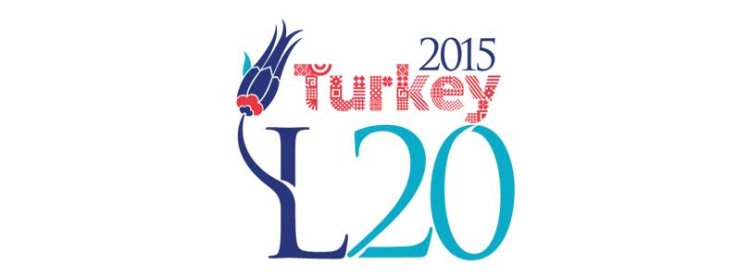The meeting highlighted L20 priorities and allowed for an exchange with the Turkish Presidency and other outreach groups.
Turkish unions highlighted the importance of safe workplaces, fighting informality, good working conditions for migrants and training at the G20 level. To coordinate international and Turkish L20 positions and outputs, the L20 Turkish Steering Committee will closely cooperate with the ITUC and TUAC.
Ali Babacan and the Turkish Sherpa both underlined Turkey’s focus on the so-called “3 I’s”: Inclusion, implementation and investment. Both admitted that the impact of G20 policies on workers has yet to materialise. This has been previously confirmed by the ITUC Global Poll and the L20 Tracking Report – policies not only need to be implemented but designed with their social effects in mind. The Turkish government officials presented the idea of establishing an implementation and monitoring framework for greater G20 efficiency, which would be an important step forward.
“The issues are on the Agenda for Turkey as host government of the G20 discussions – jobs, wages, inequality and investment. Investment must include both infrastructure and the care economy if we are to grow jobs and facilitate women’s participation. The L20 will be pressing all the G20 governments on these and other crucial challenges including industrial transformation for a low-carbon future, action for rights and living minimum wages in global supply chains, ending modern slavery and formalising the growing informal sector. The leading economies need to play their part in building a new model of business to expand and share prosperity,” said ITUC General Secretary Sharan Burrow.
Meanwhile, inequality – a core L20 issue – needs to be tackled as an economic and social problem as part of a comprehensive strategy, John Evans said at the meeting. Therefore, workers’ concerns need to be brought to the table through the L20. This necessitates a balanced and inclusive approach towards all outreach groups, union representatives said. If this year’s G20 pursues discussions on inequality and the youth unemployment crisis, as the Sherpa confirmed during the Launch, unions can contribute substantial and practical advice.
At the same time, domestic issues in Turkey concern L20 members: a minimum wage that merely covers basic needs; multiple industrial disasters that require decisive action on workplace safety; and attacks against the right to strike. The latter manifested itself in metalworkers at the sidelines of the L20 meeting protesting against their strike ban.
In the following weeks, L20 representatives will join consultations with G20 Finance Ministers’ Deputies and the Employment Working Group.
The TUAC Economic Policy Working Group meeting on March 4-5 at the OECD will evaluate the next steps, priorities and L20 contributions to the G20 this year at the global level. It will also focus on linking the G20 agenda to broader international policy processes including the international investment agenda, the COP 21 and the post-2015 framework.


